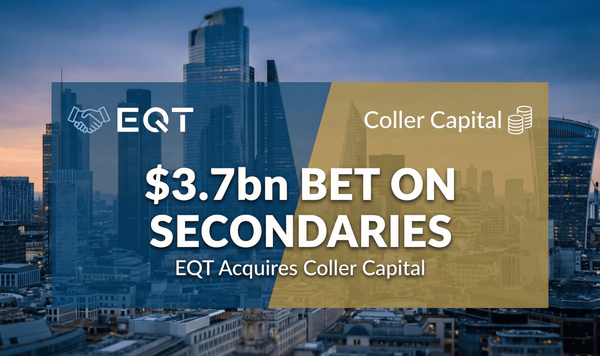The Three Pillars of Modern CFO Leadership
The Chief Financial Officer (CFO) role has undergone a profound transformation. No longer just the keeper of the ledger, today's CFO is a strategic architect and a critical voice in the boardroom.
This evolution is underpinned by three essential pillars that define success in the modern CFO landscape: Governance, Guidance, and Performance.
Pillar 1: Governance – The Foundation of Trust and Integrity
Governance for the CFO is about ensuring robust financial control, compliance, and ethical conduct across the organization. It's the bedrock upon which all other strategic initiatives are built. Without strong governance, even the most innovative strategies can crumble.
- What it entails:
- Financial Control & Compliance: Implementing and overseeing internal controls (often leveraging automated systems for greater accuracy and efficiency), ensuring adherence to accounting standards (e.g., IFRS, GAAP), tax regulations, and other legal requirements. This includes managing audits, preparing accurate financial statements, and mitigating financial fraud risks.
- Risk Management: Identifying, assessing, and mitigating financial risks (e.g., currency fluctuations, interest rate volatility, credit risk, cyber security threats to financial data). Establishing frameworks for enterprise-wide risk management, and increasingly, integrating climate-related financial risks into assessments.
- ESG Reporting & Compliance: Taking a lead role in developing robust processes for Environmental, Social, and Governance (ESG) data collection, assurance, and reporting, ensuring compliance with emerging sustainability regulations and stakeholder demands for transparency.
- Stakeholder Accountability: Ensuring transparency and accurate reporting to shareholders, regulators, the board of directors, and other stakeholders. Protecting shareholder value.
- Ethical Leadership: Championing a culture of integrity and ethical behavior throughout the finance function and the wider organization.
- Why it's crucial for the CFO: Strong governance builds trust with investors, regulators, and employees. It protects the company's reputation and financial assets, reduces legal exposure, and provides a stable environment for strategic execution. It's about ensuring the company operates within defined boundaries and principles, including its responsibility to broader societal and environmental considerations.
Pillar 2: Guidance – The Strategic Compass
Beyond compliance, the modern CFO acts as the organization's strategic compass, providing data-driven insights and foresights that inform critical business decisions. This pillar is about looking forward, interpreting market signals, and translating complex financial data into actionable intelligence.
- What it entails:
- Strategic Planning & Forecasting: Leading or actively participating in the development of long-term strategic plans, financial modeling, budgeting, and forecasting. Utilizing advanced analytics, AI, and machine learning to create more accurate and dynamic forecasts, including scenario planning for various market conditions.
- Performance Measurement & Analytics: Developing relevant KPIs, leveraging big data and sophisticated analytical tools to identify trends, predict outcomes, and provide deep dives into profitability, efficiency, and growth drivers.
- Investment Appraisal: Evaluating potential mergers, acquisitions, divestitures, capital expenditure projects, and R&D investments, providing rigorous financial analysis to support go/no-go decisions, increasingly incorporating ESG factors into valuation and due diligence.
- Business Partnering: Collaborating closely with other C-suite executives and department heads (e.g., Sales, Marketing, Operations) to translate operational data into financial implications and support their decision-making. Serving as an internal consultant and strategic advisor.
- Capital Allocation: Advising on optimal capital structure, financing strategies, and efficient allocation of capital to initiatives that yield the highest strategic return, including investments in sustainable operations or technologies.
- Why it's crucial for the CFO: Effective guidance enables informed decision-making across all levels of the organization. It allows the company to adapt to market changes, seize opportunities, and optimize resource allocation, ensuring that financial strategy directly supports business growth and value creation. The ability to derive foresight from vast and complex datasets is a defining characteristic of modern CFO guidance.
Pillar 3: Performance – The Engine of Value Creation
The third pillar is about actively driving and optimizing the company's financial performance. It moves beyond reporting and advising, into direct action and continuous improvement to ensure the company achieves its financial objectives and maximizes shareholder value.
- What it entails:
- Cost Optimization & Efficiency: Identifying areas for cost reduction, process improvement, and operational efficiency across the entire organization, not just within finance. This often involves championing Robotic Process Automation (RPA) and other automation technologies to streamline workflows.
- Revenue Growth Strategies: Collaborating with commercial teams to understand revenue drivers, optimize pricing strategies, and identify new revenue streams or market opportunities.
- Working Capital Management: Optimizing inventory, accounts receivable, and accounts payable to improve cash flow and liquidity, often with the aid of real-time data dashboards and predictive tools.
- Profitability Improvement: Driving initiatives to enhance margins, manage product or service profitability, and ensure pricing strategies are effective, underpinned by granular, data-driven insights.
- Investor Relations: Communicating the company's financial story and performance effectively to investors and analysts, managing expectations, and attracting capital, including clear articulation of ESG performance and strategy.
- Driving Digital Transformation: Actively leading or supporting the adoption of financial technologies (FinTech) like AI, RPA, and advanced analytics to automate processes, enhance insights, and improve efficiency within the finance function and beyond, thereby directly impacting the bottom line and operational agility.
- Why it's crucial for the CFO: This pillar is where the CFO directly contributes to the bottom line and top-line growth. It's about translating insights into tangible financial results, ensuring the company is not only compliant and well-advised but also highly profitable and financially robust.
The Interconnectedness: A Holistic View for the Future-Ready CFO
It's vital to understand that these three pillars are not independent silos.
- Good Governance, bolstered by digital controls and ethical frameworks, provides the data integrity and risk mitigation necessary for Accurate Guidance.
- Effective Guidance, powered by advanced analytics and the strategic acumen of the finance team, leads to better strategic decisions that directly impact Financial Performance.
- Strong Performance generates the resources needed to further invest in robust Governance and sophisticated Guidance capabilities, enabling continuous improvement and adaptation.
For today's CFO, mastering all three pillars is non-negotiable. It requires a blend of technical expertise, strategic acumen, strong communication skills, an understanding of data and technology, and the ability to lead and develop teams.

